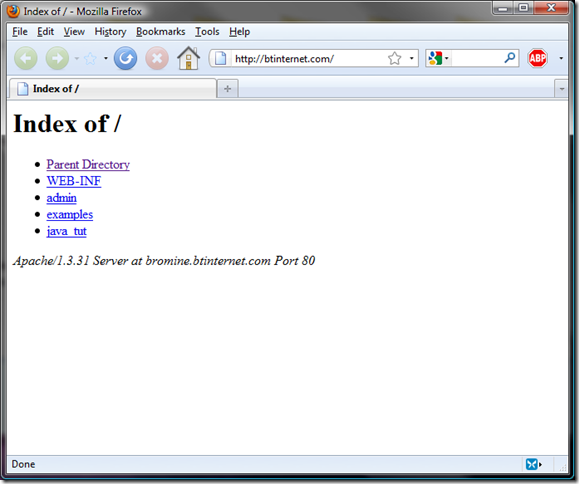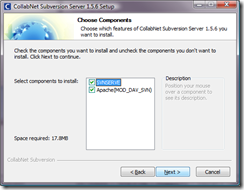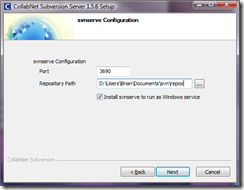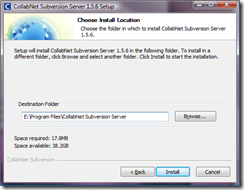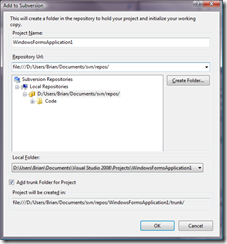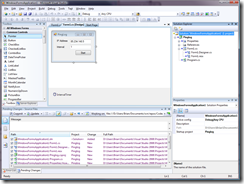The emails date back more than a decade, allegedly sent by a number of high up figures in the recent IPCC reports for the UN. More interestingly, and alarming, they appear to show a number of instances of, what can only be described as, unscientific practices.
There are three main examples that are currently doing the rounds in the blogosphere.
Regarding data manipulation:
I’ve just completed Mike’s Nature trick of adding in the real temps to each series for the last 20 years (ie from 1981 onwards) amd from 1961 for Keith’s to hide the decline.
Regarding peer-review:
This was the danger of always criticising the skeptics for not publishing in the “peer-reviewed literature”. Obviously, they found a solution to that–take over a journal! So what do we do about this? I think we have to stop considering “Climate Research” as a legitimate peer-reviewed journal. Perhaps we should encourage our colleagues in the climate research community to no longer submit to, or cite papers in, this journal. We would also need to consider what we tell or request of our more reasonable colleagues who currently sit on the editorial board… What do others think?
I will be emailing the journal to tell them I’m having nothing more to do with it until they rid themselves of this troublesome editor. It results from this journal having a number of editors. The responsible one for this is a well-known skeptic in NZ. He has let a few papers through by Michaels and Gray in the past. I’ve had words with Hans von Storch about this, but got nowhere. Another thing to discuss in Nice !
Regarding concealment of data requested under the Freedom Of Information Act:
Can you delete any emails you may have had with Keith re AR4?
Keith will do likewise. He’s not in at the moment – minor family crisis.
Can you also email Gene and get him to do the same? I don’t have his new email address.
We will be getting Caspar to do likewise.
I have to admit, it all looks pretty damning on first inspection. I expect that a lot of people will have a lot of questions to answer. But I don't think it is the smoking gun that the climate change skeptic lobby hopes it is.
There is a danger with reading private correspondance out of context. Scientists go to great length to word peer-reviewed papers in a very specific way, so as to avoid uncertainty and ambiguity. It just makes good sense. However, they are not so circumspect in supposedly private email - and I think this is what this leak shows.
In the examples quoted above, the first (and potentially most serious) is the easiest to explain away. At first glance, the use of the word "trick" and the phrase "hide the decline" seem to scream data manipulation. But on closer inspection, by looking at the discussions around this area, it seems that he's using "trick" to refer to a method of combining the data - in this case, to present a smoothed dataset including proxy (tree ring, ice core) temperatures and modern, instrumental tempaeratures to show temperature behaviour beyond 1980. The decline referred to is probably a reference to the "divergence problem", a well discussed problem in dendrochronology relating to the unreliability of tree-ring data from the mid-20th century (DailyKos explains it better here)
The second example also seems quite disappointing. Why would a scientist organise a boycott of a peer-reviewed journal when the journal in question published a paper that didn't follow the party line? Especially since the most common complaint about anti-science factions is that they don't have any peer-reviewed work...
Again, a bit of background is needed. The email refers to the journal "Climate Research" which, in 2003, published a paper (Soon and Baliunas, 2003) that had broad anti-AGW conclusions (it was actually a literature review). Despite passing review, the paper was so widely seen as flawed that it caused three of the journal's editors to resign in protest at the breakdown in process. Similarly, 13 of the paper's references disputed the authors' interpretation of their results. Finally, a reconstruction of the paper's methods, but using valid proxy temperature measurements, found a completely opposite result.
In this situation, something has clearly gone wrong with the peer-review process. So what is a scientist supposed to do? A paper like this has the potential to knock research back by years, purely because society really, really wants it to be true. Perhaps a boycott is over-reacting, but it certainly isn't a conspiracy to silence dissenters.
Finally, the deletion of emails requested by the FOI. This one, sadly, as yet has no legitimate explanation. On the surface, it points to a conspiracy to hide data or methods. But perhaps this extract from another email points to the real story:
We should be able to conduct our scientific research without constant fear of an “audit” by Steven McIntyre; without having to weigh every word we write in every email we send to our scientific colleagues. In my opinion, Steven McIntyre is the self-appointed Joe McCarthy of climate science. I am unwilling to submit to this McCarthy-style investigation of my scientific research. As you know, I have refused to send McIntyre the “derived” model data he requests, since all of the primary model data necessary to replicate our results are freely available to him. I will continue to refuse such data requests in the future. Nor will I provide McIntyre with computer programs, email correspondence, etc. I feel very strongly about these issues. We should not be coerced by the scientific equivalent of a playground bully. I will be consulting LLNL’s Legal Affairs Office in order to determine how the DOE and LLNL should respond to any FOI requests that we receive from McIntyre.
This excerpt seems to tell of a unit under constant scrutiny by a hostile critic. I can well imagine the scenario where this might prompt scientists to close ranks. Should they delete emails and withold information? No, of course not. What they've done here is clearly wrong and answers must be provided. But it doesn't point to the tax-greedy conspiracy conclusion that pretty much everyone is coming to.
What this leak really shows us is that scientists are humans, and fallible. They gloat over the death of an opponent, they fantasise violence to an annoying critic, they use sloppy language. But it shouldn't detract from the real and relevent results that they do produce.
Sadly, it already has. A cursory glance at pretty much any mainstream coverage of this story reveals an almost overwhelming tide of opinion against AGW. Furthermore, I see it cropping up in the blogs of other anti-science factions, the thinking being "if climate scientists can lie, why can't biologists/vaccination scientists/spherical earth proponents?".
CRU need to do something to extinguish this fire, because there is a very real chance that it will spiral out of control to the point that we take our eyes off the ball and miss our change to halt climate change. And in the worst case, this will have knock on effects to other "controversial" sciences.















